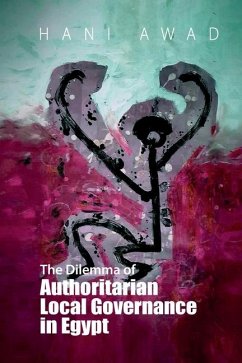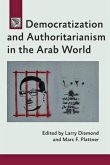Examines how centralised authoritarian regimes upgrade their system of local governance The authoritarian upgrading process in Egypt has enabled the regime to have a more effective dominance in local politics and to enhance its political control. However, its strategies failed to overcome the weakness of system mobilisation functions, which reflected the authoritarian dilemma of bridging the national and the local. Drawing on extensive fieldwork, Hani Awad explores the formal and informal decentralisation strategies employed under three regimes (Nasser, Sadat and Mubarak) to upgrade the Egyptian system of local governance without giving up power or democratising local governments. He traces the rise and increasing influence of Islamist challenges to loyalist networks and explains how the efficacy of Islamist mobilisation over the past two decades influenced the region's response to the events of the Egyptian Revolution in 2011. Key features Offers a comprehensive understanding of the way that the Egyptian authoritarian regime has upgraded its system of local governance since Nasser Maps out the motivations for the process of authoritarian upgrading of local governance, as well as its benefits for authoritarianism Analyses of the role of the state ruling party, focusing on the changing relationships between the local state and the Arab Socialist Union (1962-78) and the former National Democratic Party (1978-2011) Includes a microanalysis based on extensive fieldwork in the Greater Cairo peri-urban fringe Hani Awad is a Researcher at the Arab Center for Research and Policy Studies, Doha Institute.








